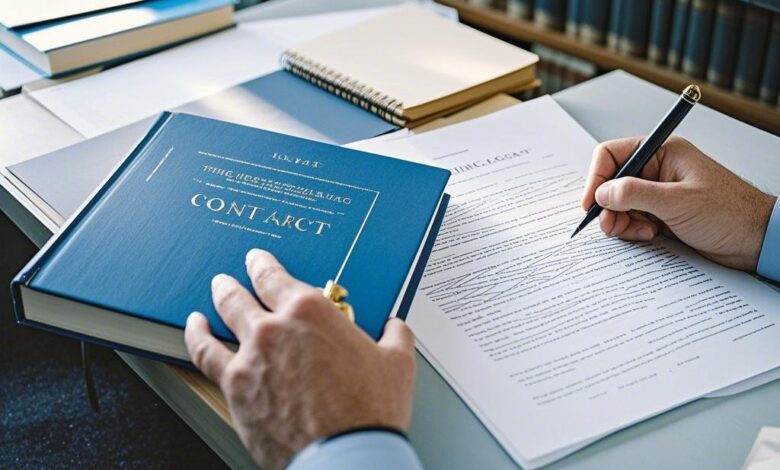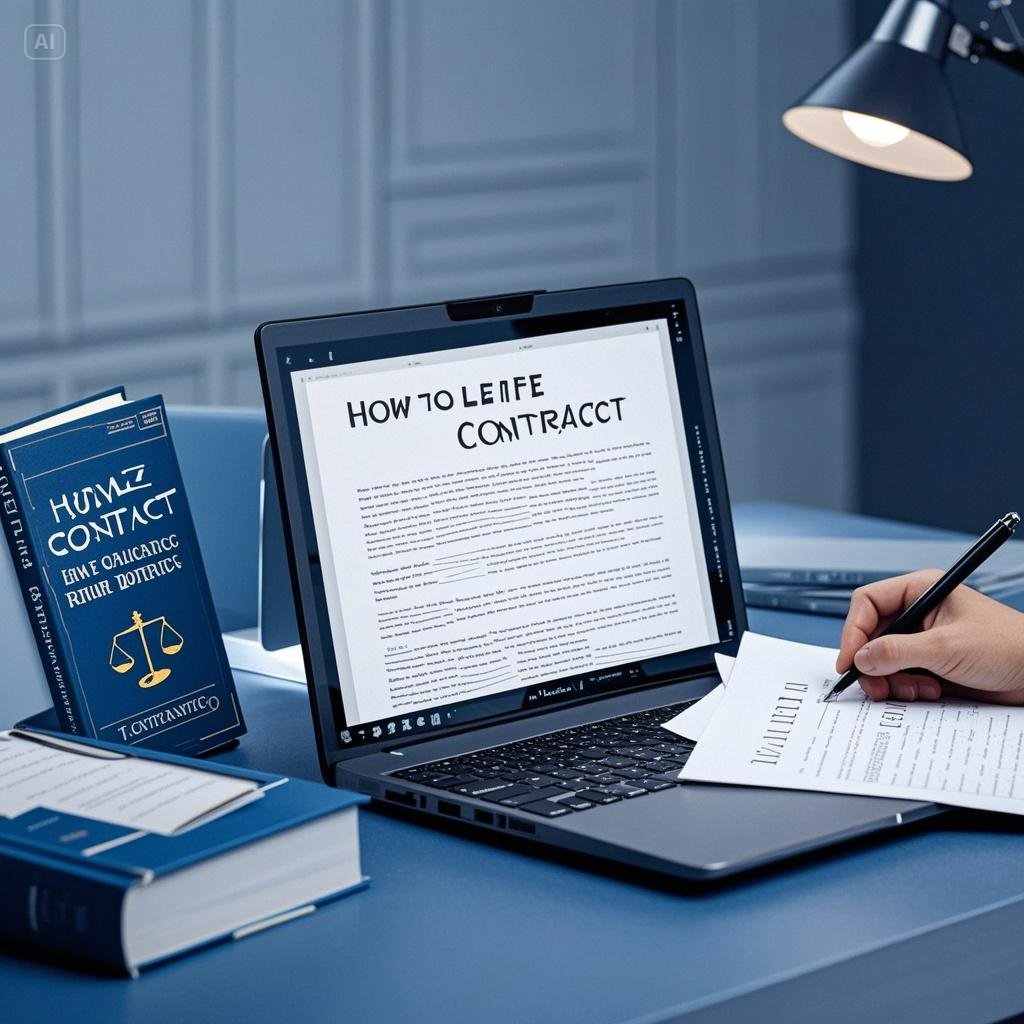How to Draft Legal Contracts That Protect Your Rights

Legal contracts are considered essential tools in the world of business and everyday transactions. They define the rights and obligations between contracting parties and ensure that matters proceed smoothly and transparently. However, drafting legal contracts is not an easy task. It requires a thorough understanding of applicable laws and regulations, as well as the ability to express terms and conditions clearly and accurately. In this article, we will discuss how to draft legal contracts that protect your rights and ensure your interests in the long term.

The strength of a legal contract depends on the clarity of its clauses, the accuracy of its drafting, and the extent of its compliance with applicable laws. The contract must cover all important aspects of the relationship between the parties and define responsibilities and rights unambiguously. It should also include clear mechanisms for resolving disputes that may arise in the future.
Understanding the Basics of a Legal Contract
Before drafting any legal contract, it is essential to understand the basics on which it is based. The contract must be based on a sound legal basis and include the essential elements that make it binding on the contracting parties. Here are some basic points to consider:
- Legal Capacity of the Parties: The contracting parties must have the legal capacity to enter into contracts, meaning they must be adults, sane, and not under guardianship.
- Consent of the Parties: There must be explicit agreement and offer and acceptance between the parties on the terms and conditions contained in the contract.
- Lawful Subject Matter of the Contract: The subject of the contract must be lawful and not in violation of the law or public order.
- Lawful Cause of the Contract: The reason that prompted the parties to enter into the contract must be lawful and not in violation of the law or morals.
- Legal Form of the Contract: The contract must be written and signed by the parties and adhere to the legal form required by law in some cases.
In addition, the contract must be clear and understandable to all parties and avoid ambiguity or confusion that may lead to disputes in the future. The contract must precisely define the rights and obligations of each party and include clear mechanisms for settling any disputes that may arise.
Identifying the Parties Involved
One of the most important steps in drafting a legal contract is to clearly and accurately identify the parties involved. The contract must include the full names of the parties, their addresses, their identification numbers, and any other necessary information to identify them unambiguously. The capacity of each party in the contract must also be specified, whether as a seller, buyer, lessor, lessee, or other.
- Full Name 📌The contract must include the full name of each party as registered in their official documents.
- Address 📌The exact address of each party must be mentioned, including the building number, street, city, and zip code.
- Identification Number 📌The ID number or passport number of each party must be mentioned to confirm their identity.
- Capacity of the Party 📌The capacity of each party in the contract must be specified, such as seller or buyer, lessor or lessee, or contractor or employer.
- Legal Representatives 📌If one of the parties is a company or institution, the names of the legal representatives authorized to sign the contract must be mentioned.
- Contact Details 📌The phone numbers and email addresses of the parties must be mentioned to facilitate communication between them.
- Guarantees and Undertakings 📌If there are any guarantees or undertakings from any party, they must be mentioned in detail in the contract.
- Responsibilities 📌The responsibilities of each party must be clearly defined to avoid any future disputes.
Accurately identifying the parties involved helps prevent any ambiguity or future disputes and ensures that the contract is binding on the persons or entities intended to enter into it.
Defining the Subject Matter of the Contract
Defining the subject matter of the contract is one of the most important elements in drafting any legal contract. The subject matter of the contract must be clear and precisely defined, and it must cover all important aspects of the transaction being organized. Here are some points to consider when defining the subject matter of the contract:
- Detailed Description The contract must include a detailed description of the good or service that is the subject of the contract, including specifications, measurements, quantities, and quality.
- Scope Definition The scope of the contract must be clearly defined, i.e., defining the actions or dispositions covered by the contract and those that it excludes.
- Prices and Financial Terms The contract must include the agreed prices and payment terms, including the payment method and deadlines.
- Term of the Contract The term of the contract must be clearly defined, whether it is fixed with an expiration date or open-ended, and the terms of renewal or termination.
- Obligations of the Parties The obligations of each party in the contract must be clearly defined, including rights, duties, and responsibilities.
- Settlement Mechanisms The contract must include clear mechanisms for settling disputes that may arise in the future, such as negotiation, arbitration, or litigation.
- Penalty Clauses The contract may include penalty clauses in the event of a breach of any of its obligations.
Defining the subject matter of the contract precisely and clearly helps avoid any future disputes or conflicts and ensures that the contract is binding on the contracting parties.
Formulating Terms and Conditions
Formulating terms and conditions is the most important part of any legal contract. The terms and conditions must be clear and accurate and must reflect the agreed-upon will of the parties. The terms and conditions must cover all important aspects of the transaction and define rights and obligations unambiguously. Here are some points to consider when formulating terms and conditions:
The terms and conditions must be written in a clear and easy-to-understand language, avoiding complex legal terms that may not be understood by non-specialized parties. The terms and conditions must be balanced and protect the rights of all parties involved. The terms and conditions must be consistent with applicable laws and regulations and avoid any clauses that may be illegal or invalid. It is essential to carefully review the terms and conditions before signing the contract and ensure that all parties have understood and agreed to them.
Paying attention to the details of the terms and conditions is a guarantee for protecting your rights and interests in any legal contract.
Dispute Resolution Mechanisms
Dispute resolution mechanisms are a vital part of any legal contract, as they define the methods and procedures that will be followed in the event of any dispute or conflict between the parties. These mechanisms must be clear and effective and ensure that disputes are resolved quickly and fairly. Here are some mechanisms that can be included in the contract:
- Mediation and Negotiation👈 The parties may agree to try to resolve the dispute through mediation or negotiation, where a neutral third party is appointed to assist in reaching an amicable settlement.
- Arbitration👈 The parties may agree to resort to arbitration, where an arbitrator or an arbitration panel is appointed to decide on the dispute, and the arbitrator’s decision is binding on the parties.
- Litigation👈 The parties may agree to resort to the competent courts to decide on the dispute, in accordance with applicable laws and procedures.
- Resorting to Experts👈 In some cases, the parties may agree to consult one or more experts to provide a technical opinion on the dispute.
- Determining Applicable Law👈 The contract must include a determination of the applicable law in the event of any dispute, to facilitate the process of resolving it.
- Determining the Competent Court👈 The contract must include a determination of the competent court to decide on the dispute, in the event of litigation.
- Determining the Procedures to be Followed👈 The contract must include a determination of the procedures to be followed in the event of any dispute, to avoid any delays or complications.
By including clear dispute resolution mechanisms in the contract, the parties can avoid resorting to expensive and time-consuming litigation and ensure that disputes are resolved quickly and effectively.
Reviewing the Contract and Signing It
After drafting the contract, it is necessary to review it carefully and ensure that all terms and conditions reflect the agreed-upon will of the parties. Each party must read the contract carefully and raise any questions or inquiries before signing it. A lawyer or legal consultant can be consulted to review the contract and ensure that it protects the rights of all parties involved.
- Careful Reading Read the contract very carefully and make sure you understand all the clauses and conditions.
- Asking Questions Do not hesitate to ask any questions or inquiries you have about the contract before signing it.
- Legal Consultation Consult a lawyer or legal consultant to review the contract and make sure it protects your rights.
- Modifications Make any necessary modifications or changes to the contract before signing it.
- Signing Make sure all parties involved have signed the contract and that it is properly documented.
- Preservation Keep an original copy of the contract in a safe place.
- Follow-up Follow up on the implementation of the contract and make sure all parties adhere to their obligations.
Dealing with International Contracts
International contracts are considered more complex than domestic contracts, as they involve several additional factors that must be considered, such as the difference in laws and regulations between countries, the difference in languages and cultures, and the difference in currencies and payment systems. Therefore, the contracting parties in international contracts must be more careful and meticulous when drafting and reviewing the contract. It is necessary to seek the assistance of legal experts specializing in international law to ensure that the contract protects the rights of all parties.
In addition, the international contract must include clear clauses defining the law applicable to the contract and the court with jurisdiction to settle any dispute that may arise. The contract must also include clauses defining the payment method, the currency used, and the language adopted in the contract. It is also necessary to ensure that all parties involved have understood all the clauses of the contract before signing it. Consequently, these measures can help ensure that the international contract is properly implemented and avoid any future disputes or conflicts.
Be Careful and Avoid Common Mistakes
When drafting legal contracts, it is essential to be careful and avoid common mistakes that may lead to future problems and disputes. Among these errors are:
- Ambiguity and Confusion Avoid using ambiguous or unclear language in the contract and try to use precise and clear language as much as possible.
- Failure to Specify Details Avoid failing to specify important details in the contract, such as prices, dates, and conditions.
- Failure to Review the Contract Avoid signing the contract before reviewing it carefully and ensuring that all terms and conditions reflect the will of the parties.
- Failure to Seek Legal Expertise Avoid failing to seek the assistance of a lawyer or legal consultant to review the contract, especially if the contract is complex or contains unfamiliar clauses.
- Failure to Include Dispute Resolution Mechanisms Avoid failing to include clear mechanisms for settling disputes in the contract, as this may lead to delays and complications in the event of any dispute.
- Rushing to Sign Avoid rushing to sign the contract, and take enough time to read and understand it.
- Relying on Ready-Made Templates Avoid relying completely on ready-made contract templates, and try to adapt the contract to suit the specific circumstances of the transaction.
Conclusion: In conclusion, it can be said that drafting legal contracts that protect your rights requires a deep understanding of applicable laws and regulations, as well as the ability to express terms and conditions clearly and accurately. The contract must be based on sound legal foundations and cover all important aspects of the relationship between the parties. By seeking legal expertise, paying attention to details, and taking care to review the contract carefully before signing it, you can protect your rights and interests in the long term.
In addition, you must remember that legal contracts are not just formal documents, but are powerful tools for regulating relationships and protecting rights. Therefore, they must be treated with seriousness and caution, and invest in drafting and reviewing them correctly. By employing these strategies in a balanced and thoughtful manner, you can build strong business and legal relationships and achieve success and stability in all your transactions.



